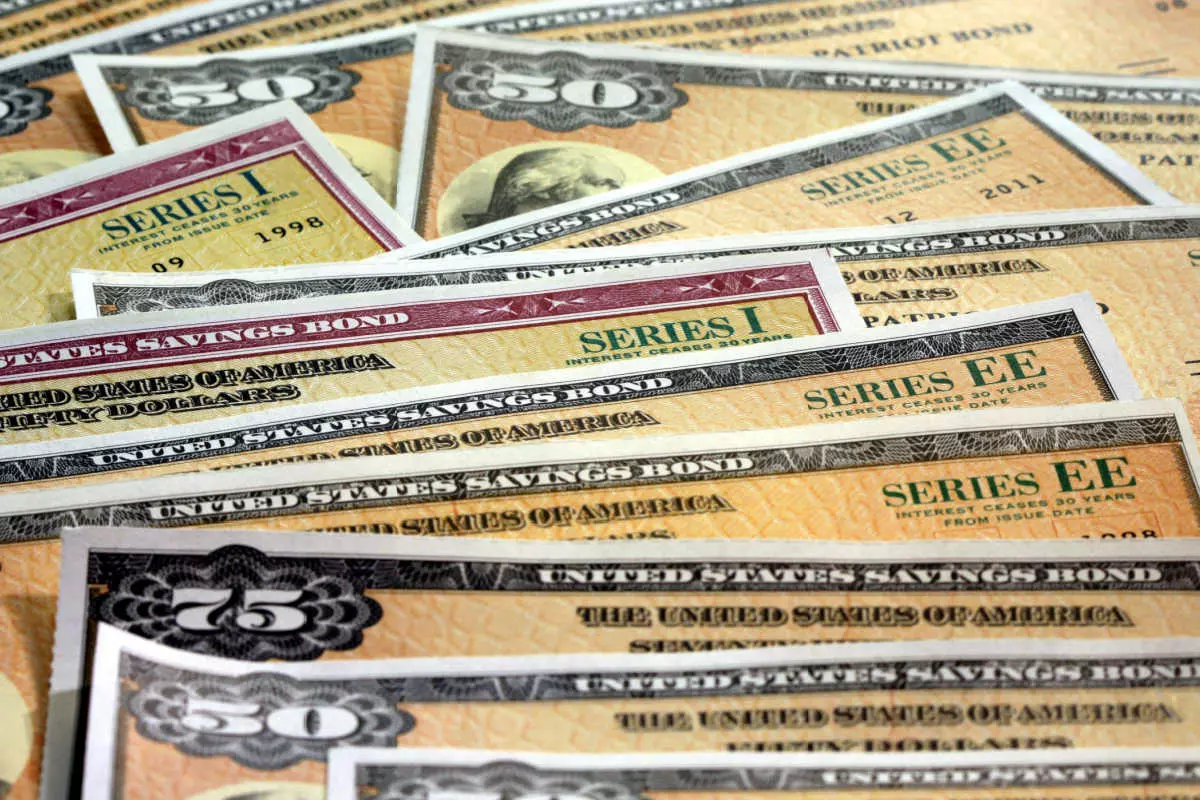Facing a potential recession can feel like a formidable challenge. And with economists predicting a 99% chance of an impending recession, you might not have much time to prepare for it if you don’t start now. However, with preemptive planning and strategic investments, you can weather this storm.
Let’s explore how to survive a recession and thrive afterward in the U.S. We will dive into the potential of emergency funds, portfolio diversification, and other methods on how to prepare and survive an impending recession.
What Is a Recession?
A recession is a period of temporary economic decline during which trade and industrial activity are reduced. It’s typically identified by a fall in Gross Domestic Product (GDP) in two successive quarters.
During a recession, jobs can become scarce, businesses struggle or fail, and money loses value. Understanding the nature and possible consequences of a recession is the first step in learning how to survive and even leverage a recession.
How to Prepare for a Recession
With the threat of another recession on the horizon, you may be wondering how to survive this economic crisis. Surviving a recession lies in taking pre-emptive action. This section discusses some tips on how to survive a recession.
1. Create an Emergency Fund
An emergency fund serves as a financial buffer in times of economic turbulence. An ideal emergency fund should cover at least three to six months of living expenses. This is not just a safety net but also provides peace of mind and lets you make calculated decisions rather than fear-based ones if there is any interruption to your income stream.

The key to an emergency fund is consistency and a systematic savings approach. Start by setting aside a small portion of your monthly paycheck – about 10% to 15%. Over time, this accumulates into a substantial fund.
Here are some tips to help you build your emergency fund more efficiently:
- Keep your emergency fund in a separate account to avoid spending it.
- Set up automatic transfers to move your money from your checking account to your emergency fund.
- Use savings apps like Mint, YNAB, and Digit to track your income and expenses.
- Save any unexpected income, such as tax refunds or bonuses.
To avoid devaluation of this emergency fund due to inflation, here are some investment options you can consider:
- High-Yield Savings Account: Unlike a traditional savings account, high-yield savings accounts offer a higher interest rate, around 4%, compared to an average of 0.4% for a regular savings account. This can help your emergency fund keep up with inflation and maximize financial growth.
- Money Market Account: Similarly, average money market rates range between 0.01% APY and 3.45% APY. Interest rates for money market accounts often increase depending on the amount in the account – so the more you have in your account, the more you could earn in interest rates.
2. Pay Your Debts
Paying off your debt is the next step to survive economic collapse. Eliminating your financial liabilities before a recession could free up more cash to direct to your emergency and savings account, providing a stronger buffer for economic hardships.

One strategy could be the ‘avalanche’ method, where you prioritize paying off high-interest debt first. Once the highest-interest loan is fully paid off, you move to the next highest, and so on. The logic behind this method is that you’re reducing the total interest you’ll pay over time. Just make sure to check with your lenders to see if you won’t be penalized for early repayment.
Another strategy is the “snowball” method. Instead of focusing on interest rates, you start by paying off the smallest debt first while making minimum payments on the rest. This can motivate you to pay off larger debts with more confidence over time.
If you have multiple debts, especially high-interest credit card debts, consider consolidating them to a single loan with a lower interest rate. This can simplify your payments and reduce the total amount of interest you’ll pay.
3. Have Additional Income
Relying solely on one income stream during a recession is like laying all your eggs in one basket – risky and potentially disastrous. Job security is not common during a recession, so diversify your income before the economic downturn to reduce the risk of financial stress if one of those streams gets cut.

Here are 5 potential additional income streams to consider:
- Side Business: If you have a hobby or a skill that can be monetized, consider turning it into a small business. This could be anything from crafting homemade goods to providing consulting services. Start by marketing your products or services on social media or through word of mouth. Over time, you might consider setting up a website or online shop to reach a wider audience.
- Freelance Work: Freelancing can be done anywhere and in your own time. Explore platforms like Upwork, Fiverr, or Freelancer, which connect freelancers with businesses needing services.
- Rental Income: If you have an extra room or a second property, consider renting it out for additional income. Websites like Airbnb and Booking.com make it easy to rent out spare rooms or properties.
- Online Platforms: Leverage your skills or assets to generate income through various online platforms. For example, if you’re a talented photographer, consider selling pictures on Shutterstock.
- Teaching or Tutoring: If you’re knowledgeable about a specific subject, consider offering tutoring services. Platforms like Outschool for K-12 teachers or Udemy for adults make it easy to share your knowledge with others and generate revenue.
4. Diversify Your Investments
Having a mix of investment types can help safeguard your wealth during a recession. This could include a blend of precious metals, bonds, and certificates of deposit.
Here are 3 commodities that can help you diversify your investments:
Gold
Gold has historically held its value well during recessions because it is valued globally for its intrinsic worth and hedge against inflation. For instance, during the beginning of the 2008 recession, gold prices increased by about 50% in nine months.

Investing in gold takes various forms. Physical assets, gold coins and bars offer tangible value that is not tied to digital market fluctuations. Therefore, during a recession, the tangibility of gold can be a comforting counterbalance to unpredictable markets.
Gold ETFs offer an accessible route to gold investment without the need to handle the physical metal. Their ability to mirror the performance of gold prices can add a degree of resilience to your portfolio. This can be particularly valuable during a recession, as gold often retains its value better than many other assets.
Finally, investing in gold mining stocks can offer a unique form of leverage. As companies unearth more gold, the value of your investment can grow faster than physical gold’s price increase.
Government Bonds
Bonds are also tried-and-true investments that offer a mix of security and steady returns that make them a solid addition to your recession-battling financial strategy. These investments come with a remarkable guarantee – they are backed by the full faith and credit of the U.S. government. This means the government is obligated to pay back the bond’s face value upon maturity, regardless of the state of the economy.

When you purchase a government bond, you’re lending money to the government. In exchange for your loan, the government pays you interest over a set period, returning your original investment when the bond matures.
Let’s delve into the different types of government bonds. Treasury bonds, or T-bonds, are long-term investments that mature between 10 to 30 years. With semiannual interest payments, they offer a steady income stream, even during turbulent times.
Treasury notes, or T-notes, are similar, but they have shorter maturity periods – ranging between two to 10 years. They also provide regular interest payments, making them a reliable investment option.
For a shorter-term investment, Treasury bills, or T-bills, are the way to go. These mature in a year or less and are sold at a discount to face value. This means that you’ll receive more at maturity than what you initially paid, offering a swift return on your investment.
Certificates of Deposit (CDs)
When investing in a CD, you deposit a set amount of money into a bank for a specified period (ranging from a few months to several years), and in return, the bank promises to pay you a fixed interest rate. When that period ends, you get back your original investment along with the accrued interest. It’s essentially a time-locked savings account with a better return.
So, why consider a CD as part of your recession-proofing strategy?
For starters, CDs are considered one of the safest investments you can make, as they’re insured by the FDIC up to $250,000. This means that even if the bank fails, your investment is protected.
Additionally, the fixed interest rate on CDs can serve as a financial anchor during a recession. As market volatility increases, the rate of return on your CD stays the same, providing a steady and predictable source of growth for your money.
5. Keep Your Credit Score High
In the event that you want to apply for a loan during a recession, maintaining a high credit score before the recession hits can be beneficial. A strong credit score can help you secure funds more easily and at potentially lower interest rates in case of a financial emergency.

However, taking out a loan should be considered a last resort option. Borrowing during a recession can be risky and could lead to additional financial strain, especially if your income has decreased or become unstable.
Here are 3 tips on how to keep your credit score high during a recession.
- Timely Payments: Consistently paying your bills on time shows lenders that you’re a reliable borrower, even in a downturn. This reliability can prove invaluable in securing loans or negotiating repayment terms in case of financial distress.
- Credit Utilization: Keeping your credit card balances low, even when times are tough, signals to lenders that you’re not overly reliant on borrowed money, straightening your credit standing.
- Regular Credit Report Checks: Regular monitoring helps you spot discrepancies and rectify them before they become issues. For instance, there might be incorrect late payments reported or accounts listed that you don’t recognize, potentially indicating fraudulent activity. With regular checks, you can dispute these inaccuracies to get them removed.
Final Thoughts
Navigating the murky waters of a recession might seem daunting, but with strategic preparation, smart financial decisions, and an optimistic outlook, you can successfully navigate through it. Understanding how to survive a recession involves continually learning, adapting, and implementing strategies best suit your circumstances.
And remember, a downturn isn’t just about survival – it’s also an opportunity to rethink, reinvent, and build a stronger financial future.
James Miller is a Senior Content Writer at McGruff.com. He has a background in investing and has spent most of his career in the financial industry. He can trace his family tree back to the California Gold Rush when his ancestors risked it all to make it big in the west. He feels like he's following in their footsteps as he strives to make sense of today's gold market.
